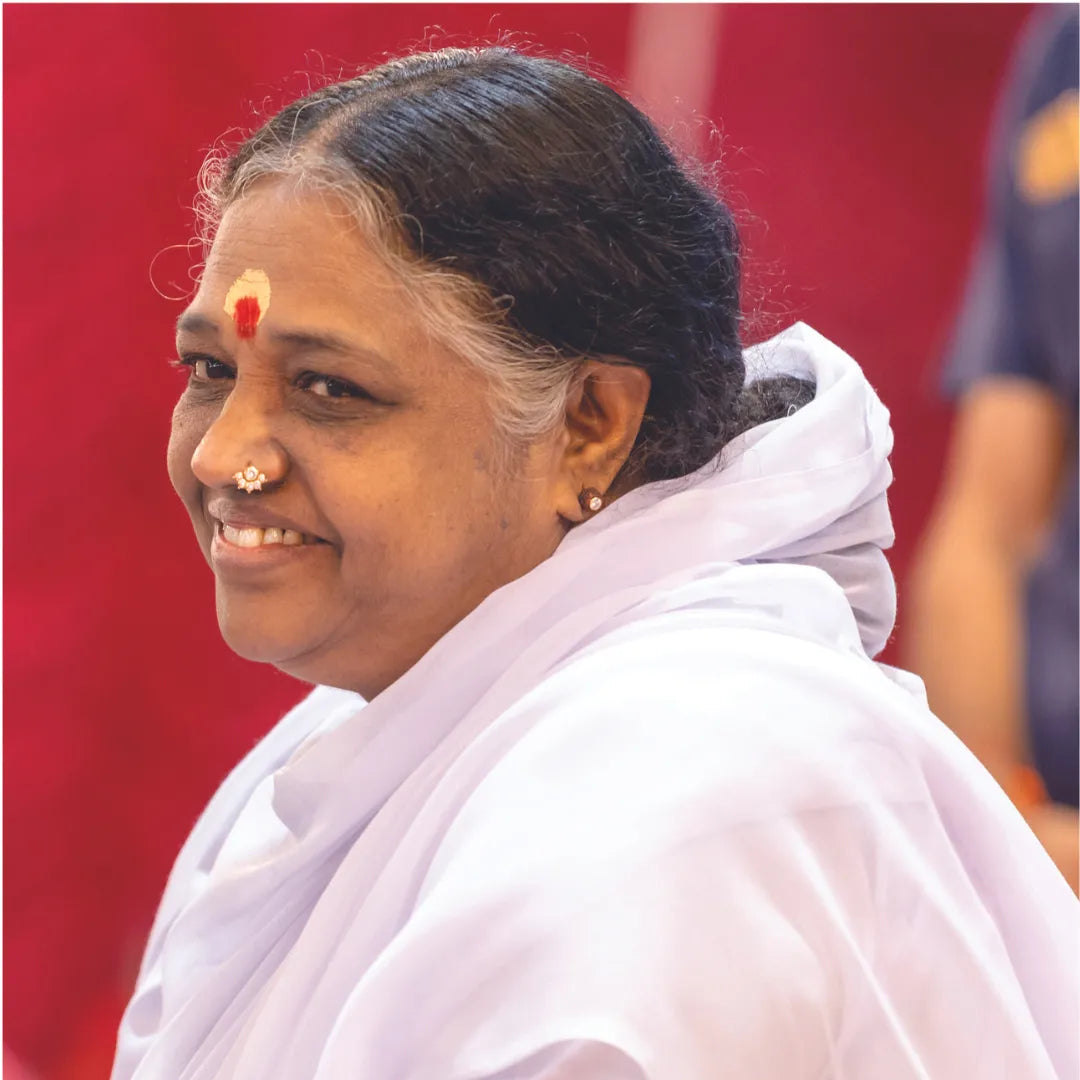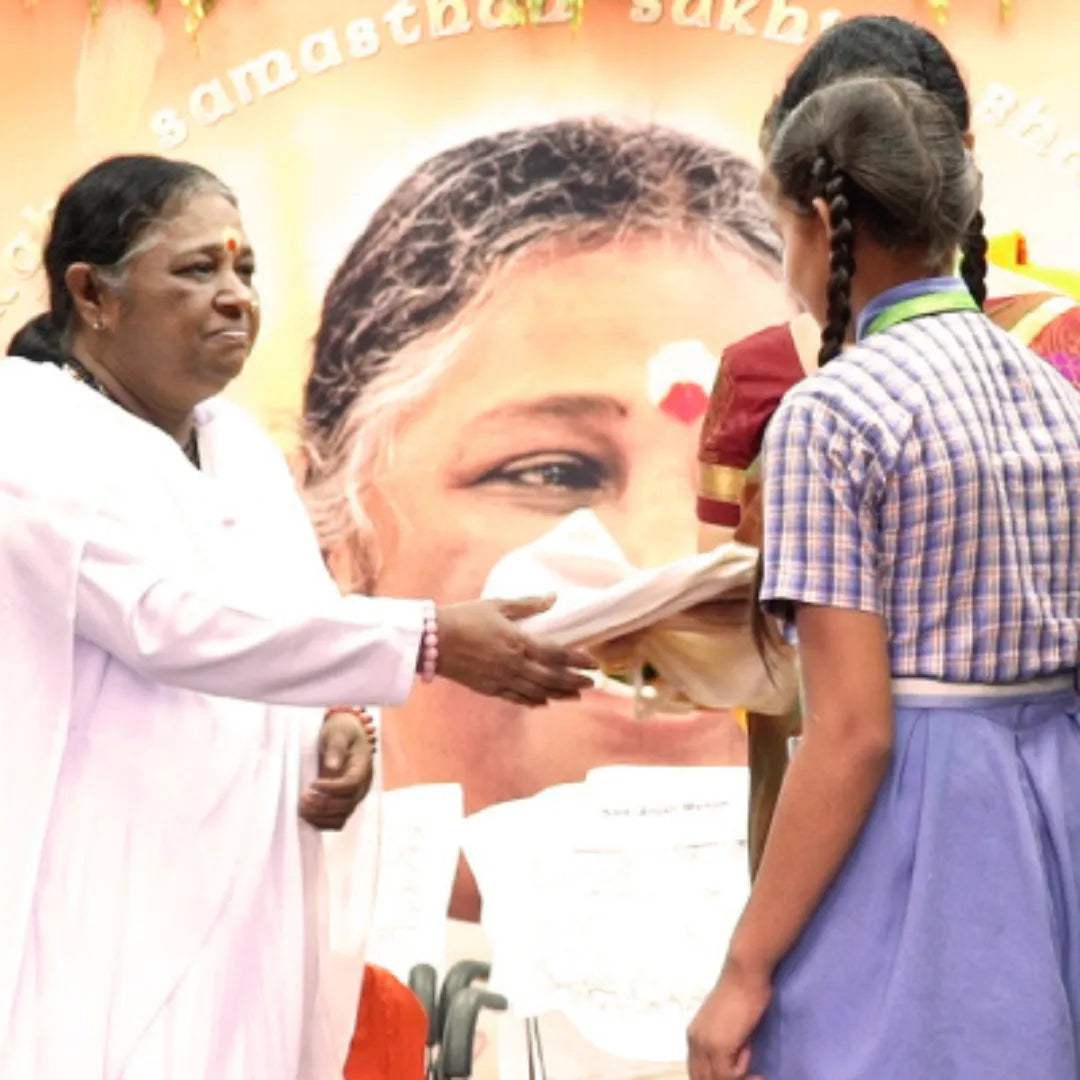Price :
QTY :
CART TOTALS :
There are items
in your cart
Total Price :
Your shopping bag is empty
Go to the shopMata Amritanandamayi Math led by Amma, Sri Mata Amritanandamayi Devi, adopted 100 villages across India in 2013 with the intention of developing them sustainably. When the volunteers from Math reached the villages, they noticed that some of the social, economic problems were related to the lack of access to clean menstrual products. Many children dropped out of school and were using unhygienic products during their periods.
Amma asked the team to provide the children and women with free menstrual pads. However, it was not just any pads that Amma wanted to distribute but reusable pads. Further, Amma said to research on banana fibre and use it as the absorbent material in the pads. Banana fibre is a type of cellulose that can absorb liquids. In general, for making disposable pads, trees are cut in large numbers to get cellulose, the core absorbent material in these pads. However, we don’t cut any banana tree for making our pads. It is an interesting fact that banana trees bloom only once in their lifetime. After which the farmers cut them. It is this agricultural waste that Amma wanted the team to use for making the reusable pads. Also, India is one of the largest producers of banana trees.
After research and many modifications, the first reusable cloth pads made with banana fiber in the world was born. During this time, Amma guided the research team on even minor aspects of designing the pad. She envisioned to produce the best quality pads with no chemicals using the most cost-effective production process. As per this vision, the pads have been made chemical free and don’t cause any harm to body like the disposable pads.


Disposable pads take millions of years to decompose. During this time, it pollutes the land, air and water. It can’t be burnt either as they release toxic fumes into the atmosphere. Reusable pads on the other hand are decomposable. Once purchased, they can be used at-least for 3 years. We have customers who have used it for even 5 years. Maintaining these pads are also very easy.
Amma didn’t stop there, she wanted to empower rural women financially through this project. She asked the team to train village women to make these pads and help them sell the pads online throughout the world.
It was Ammas vision to provide a safe to use, good quality menstrual pad to women of all strata in society. She also ensured that the pad causes no harm to environment during the production, usage or after it is disposed. She also wanted the rural women get a livelihood through the production of these cloth pads. Thousands of women have been benefitted through this research project.
Her vision has inspired our team and volunteers to produce this handmade wonderful product for women.